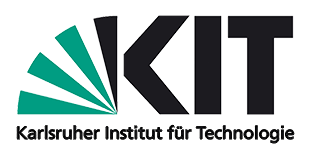The Karlsruhe Institute of Technology (KIT) is a higher education and research organisation with about 8000 employees, 18,500 students, and a total annual budget of about 700 million Euros. KIT was established on 01/10/2009 as merger of Universität Karlsruhe, one of Germany’s leading research universities, and Forschungszentrum Karlsruhe, one of the largest research centres in the Helmholtz Association. Higher education, research, and innovation are the three pillars of KIT’s activities. The Institute for Technology Assessment and Systems Analysis (ITAS) works within the programmes of the Helmholtz Association, as well as in third-party funded and contract activities. This includes a wide range of research activities but also a variety of public science activities.
ITAS is capable of contributing expertise in governance and policy aspects of science and technology, technology assessment, stakeholder involvement, public policies, and public engagement with science. Thus its Tasks are: Coordination of the Mobilization Mutual Learning Action Plan (MMLAP); lead of Platform “Research & Policy”, as well as Work Packages “Research and Policy”, Management and the Action Field “From Research to Innovation”. Furthermore it’s the Rapporteur to the European Commission of SYN-ENERGENE Open Foras. The Institute of Toxicology and Genetics (ITG), is a highly international and interdisciplinary research institute where biologists, chemists and physicists together aim to elucidate molecular and cellular interactions at functional interfaces. This knowledge guides the rational design and engineering of novel sophisticated tools for controlling the behaviour of cells in vivo and in vitro. It supports the ITAS in general and especially in managing the Science Forum and Policy Forum.
The ZAK | Centre for Cultural and General Studies is a central scientific institution, combining teaching, research, and public science under one roof. Interdisciplinary exchange within KIT is supported through interdisciplinary and intercultural education. Additionally, dialogue between science and society raises awareness for differing disciplinary and societal cultures. Thus, the ZAK provides central services to encourage participation and to support the social responsibility of KIT in research, teaching, and innovation. The Public Science at ZAK aims to make complex topics accessible to a broad audience in an easy way. The objective is to impart the necessary and discerning knowledge for the public to participate in discussions about the latest findings and about the consequences of scientific action. The ZAK focusses on contributions to Platform “Public Science & Participation” and especially organizing of public dialogue events in Karlsruhe.

